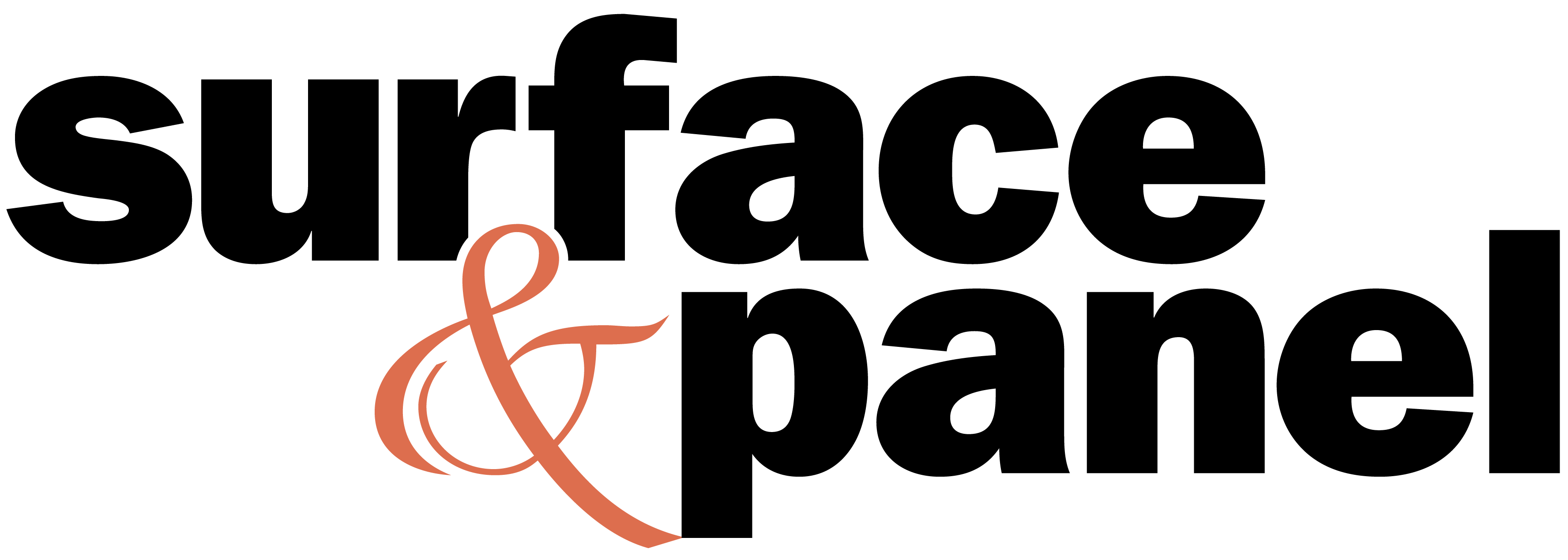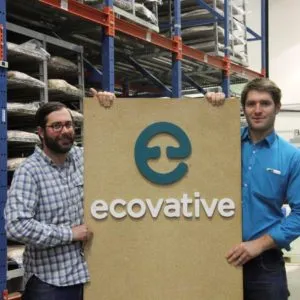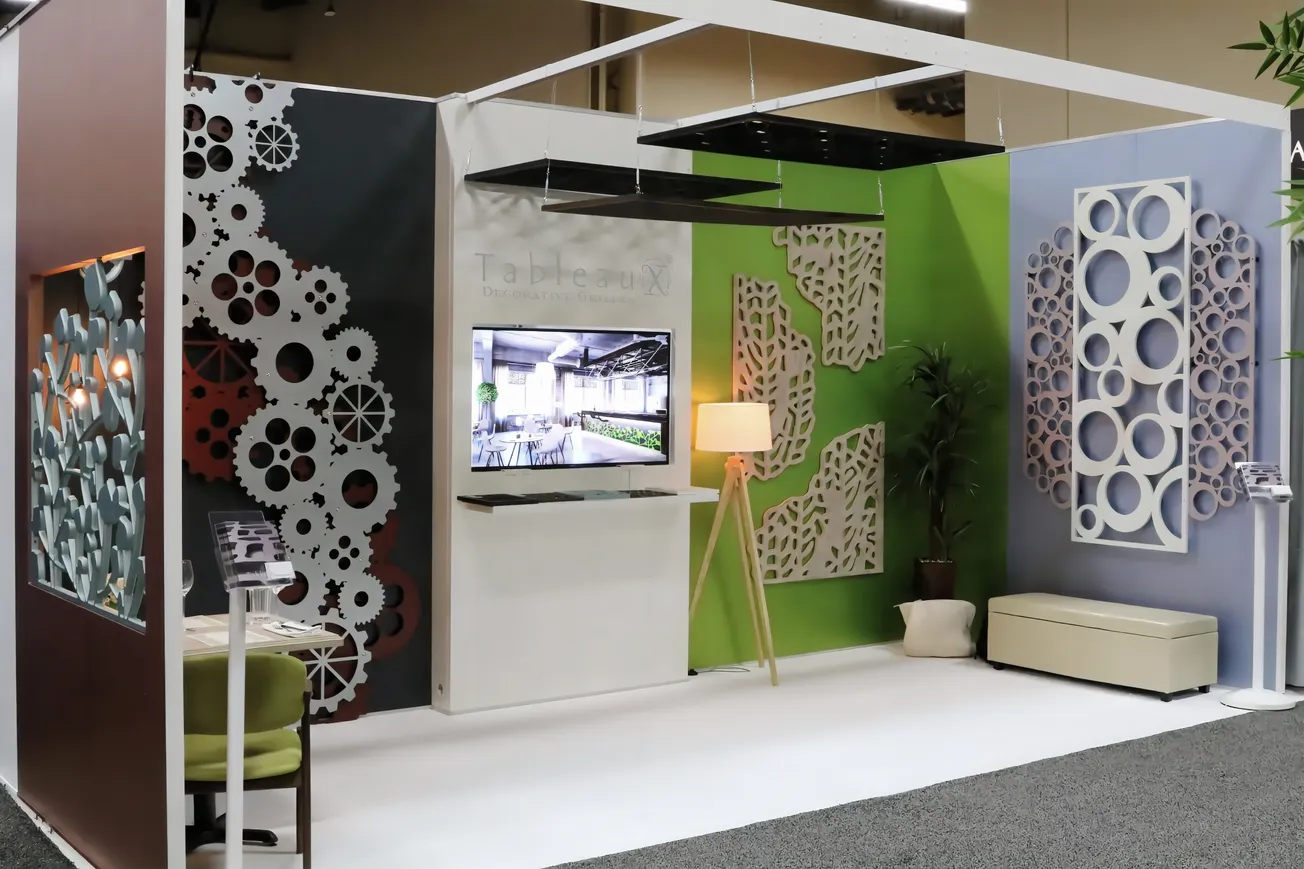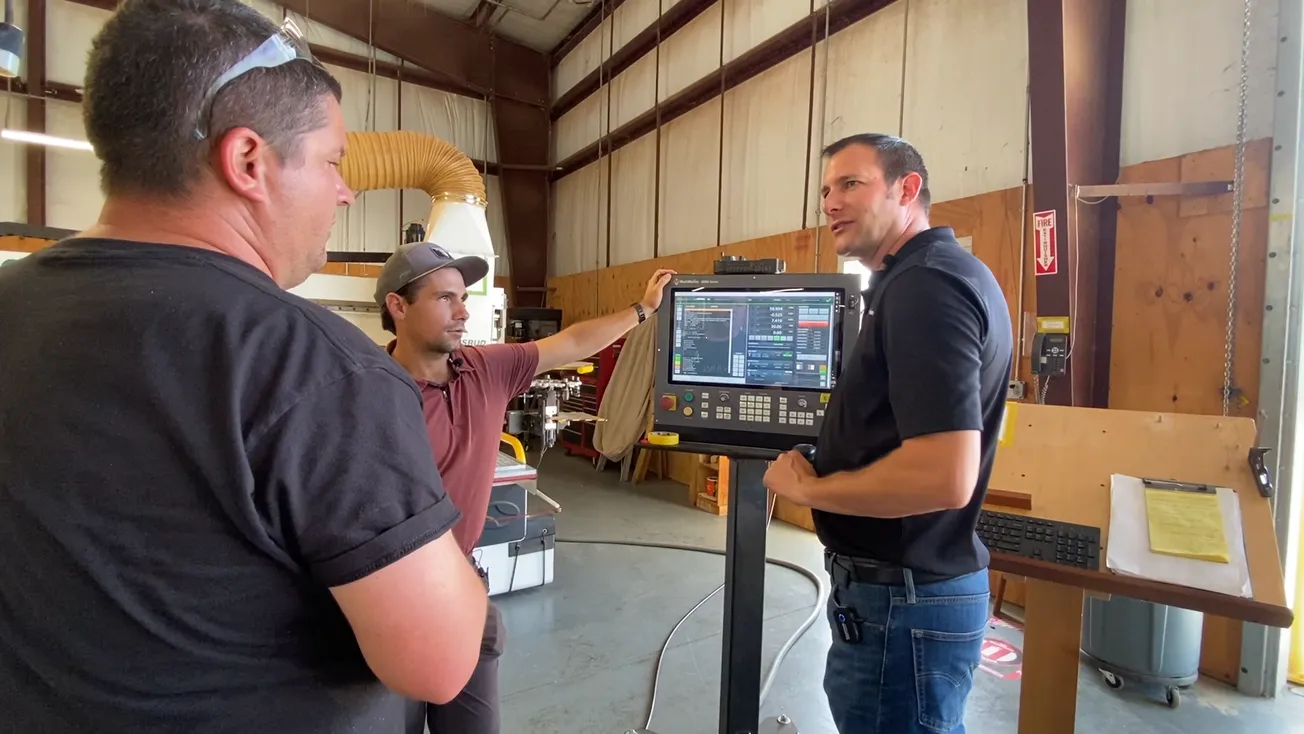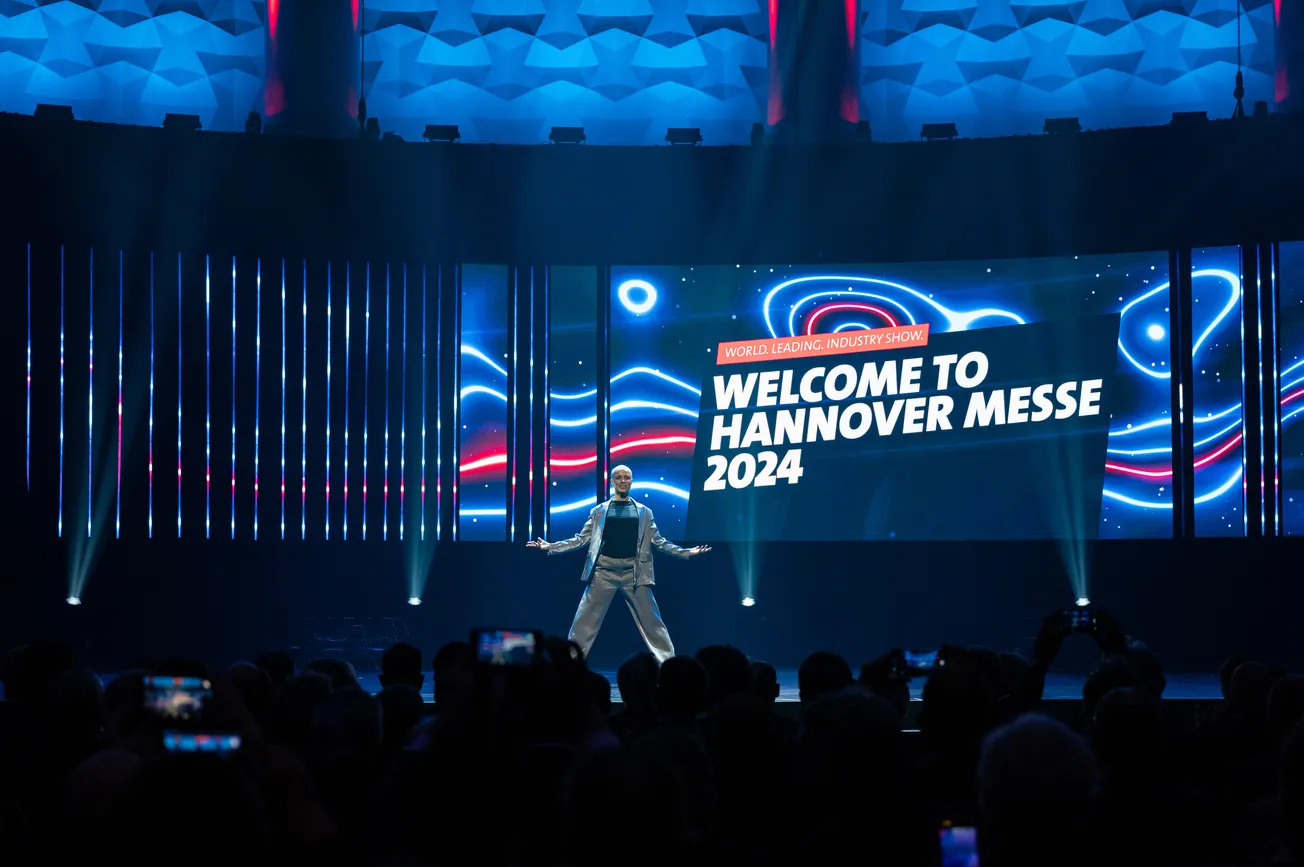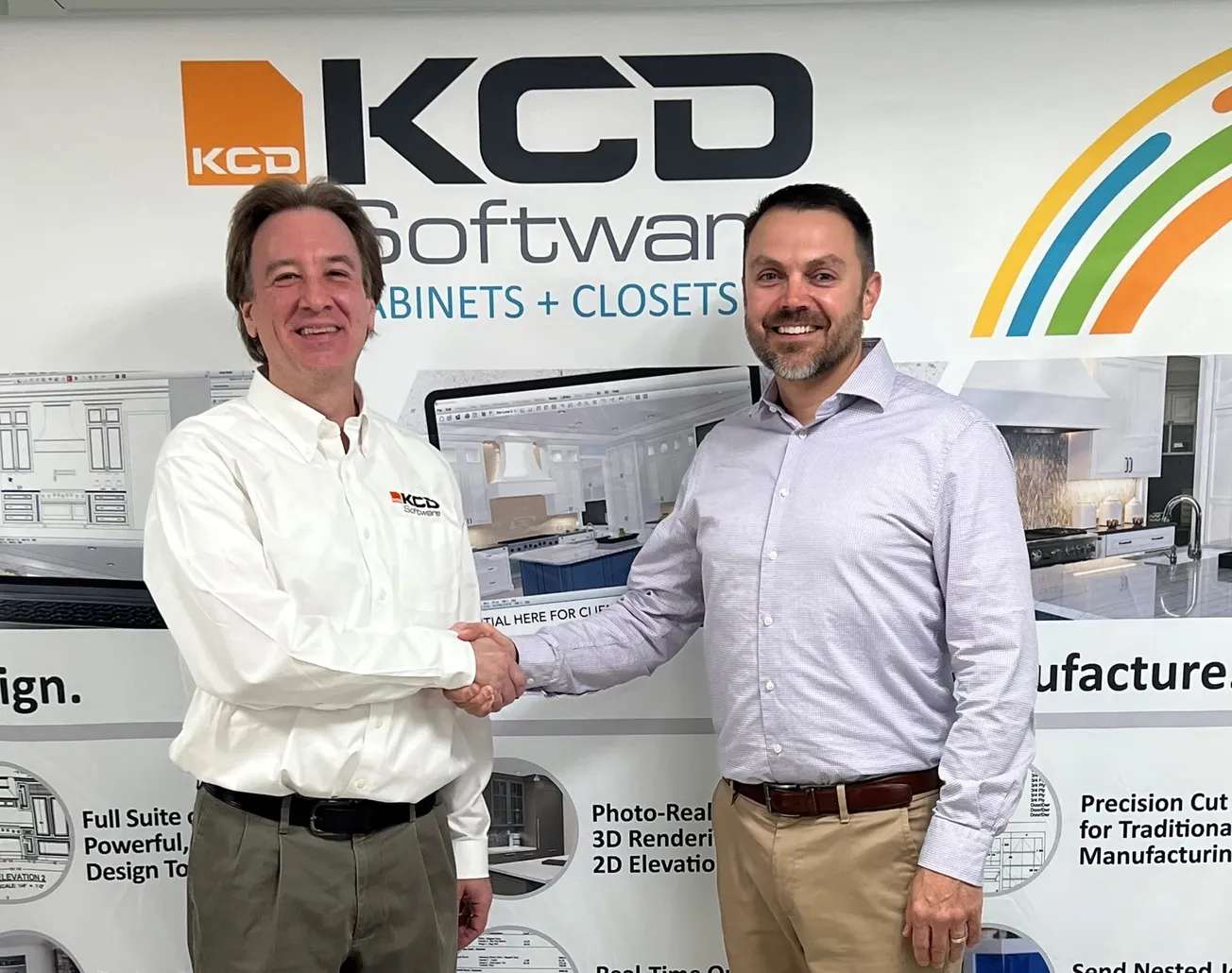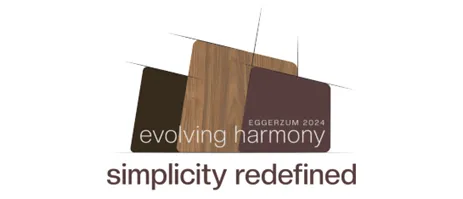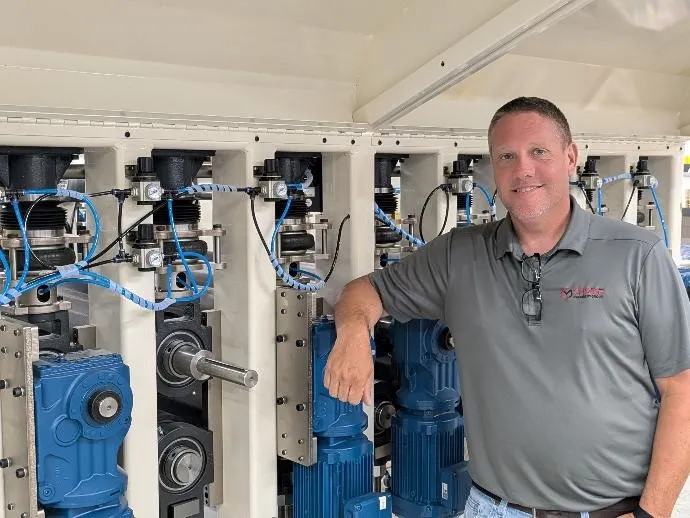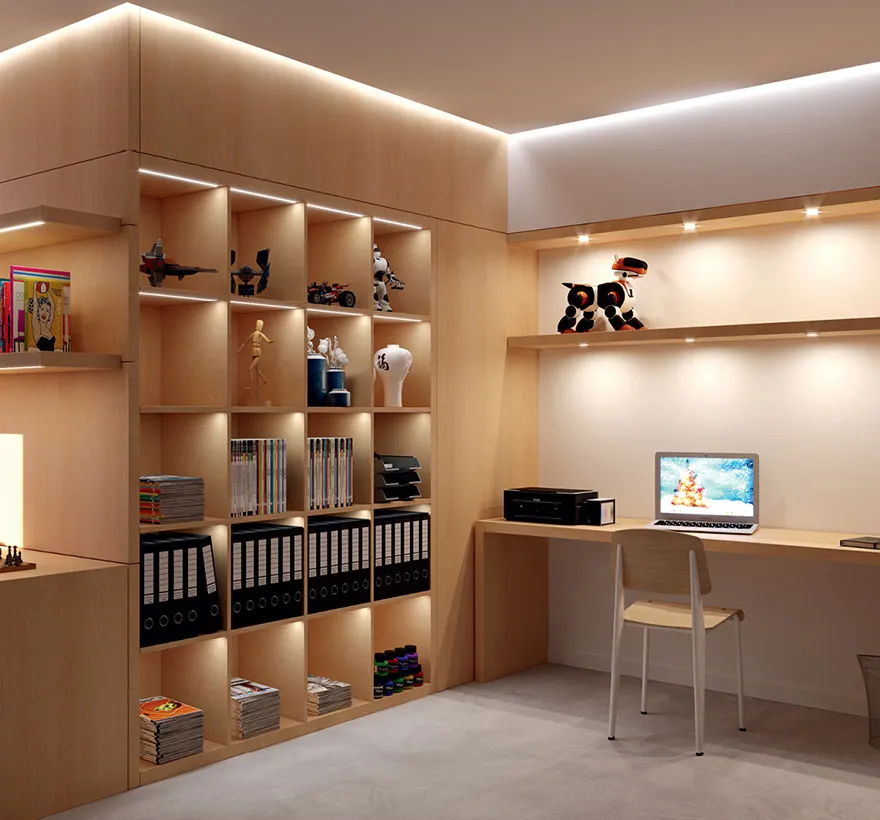Table of Contents
It’s all about the fungi
Ecovative creates mycelium resin that it says is safer and can be cheaper than formaldehyde-based products.
By Scott W. Angus
Customer demand and government regulation are driving the pursuit of innovative resins that reduce the level of formaldehyde and other potentially toxic materials in engineered wood. Believe it or not, the solution for mill owners and the manufacturers they supply may be found in mushrooms.
Ecovative, a New York-based biomaterials company that creates environmentally friendly products to compete with conventional plastic and resin materials, is marketing a natural resin it believes will significantly change the composite panel industry for the better.
Ecovative’s formula involves using mycelium from fungi to create the resin that binds the fiber to make engineered wood product they call MycoBoard. The company is producing and selling particleboard and is working on versions of medium-density and high-density fiberboard.
The best part? It’s all natural and nearly formaldehyde free. With the health concerns and negative publicity surrounding formaldehyde, Ecovative’s owners believe producers and consumers will welcome their products.
 They know going green is good business, but it is not enough. They must compete from quality and cost standpoints, as well. So far, they like what they see.
They know going green is good business, but it is not enough. They must compete from quality and cost standpoints, as well. So far, they like what they see.
“We’re looking at performance, health and cost,” said Gavin McIntyre, one of Ecovative’s two founders. “It’s not just about being green. We believe our other values will allow us to compete.”
The company’s roots go back to the college days of McIntyre and co-founder Eben Bayer, who were mechanical engineering students at Rensselaer Polytechnic Institute in Troy, New York, in 2006. One program required them to solve a pressing problem, and they focused on finding materials that were compatible with nature and biodegradable to replace plastics and existing resins. They were inspired by seeing mycelium growing naturally in wood chips and binding them together.
They wondered how that natural process would translate to a production environment, so they began growing fungi under their beds and in their closet. They started testing, and their success led them to invent an insulation material using agricultural waste and mycelium. A professor encouraged them to turn their technology into a company, and they soon began making an alternative to plastic packaging foam.
The packaging business sustained them in the early years. Through their packaging contact with the furniture industry, however, they learned more about formaldehyde concerns with processed-panel products, so they launched the MycoBoard engineered wood alternative and began selling molded products, including seat backs, to customers such as Gunlocke. Ecovative began producing board stock in 2015.
Roy Green, director of stewardship and sustainability at Gunlocke, said his company and others in the industry have been impressed by Ecovative’s innovative products and commitment to the environment.
“The A&D community greeted the molded MycoBoard seatbacks in our Savor chair with immense and ongoing enthusiasm,” Green said. “We have built a productive partnership with Ecovative through this breakthrough design and believe it will endure as we seek new ways to incorporate more sustainable features into our present and future furniture offerings.”
Ecovative now has more than 80 employees, manufacturing facilities in Troy and Green Island, and big plans.
Those plans are based on a process that starts with fungi that Ecovative grows at its Green Island facility. The fungi produce mycelium, which some call the fungi root but really is the exploratory phase of the mushroom.
In simple terms, McIntyre, the company’s chief scientist, explained the process this way:
Through an auger-like process, mycelium is introduced to fiber from wood or other substrate materials, such as flax, canola, hemp and corn. The mix then sits for four to six days, allowing the mycelium to grow from .1 percent of the mass to 16 to 20 percent.
The fiber mix is then put in a press and heated to anywhere from 280 to 400 degrees, and the mycelium liquefies and flows like resin, coating the material evenly and thoroughly. When it cools and cures, the MycoBoard is solid and ready for market.
Testing is ongoing, but McIntyre said MycoBoard is holding up well.
“We can’t say specifically that it’s better in mechanical properties. If you look at plywood, it’s stronger than any engineered wood material. But we have tested parts at third party forestry labs to be sure they have sufficient strength to meet all industry requirements,” he said. “As a new product, we’re doing more quality assurance than the industry does today.”
MycoBoard is naturally fire resistant due to intrinsic qualities of the fungus, and that adds to its competitive qualities, McIntyre noted, adding that the material is inert and unable to grow by the time it leaves Ecovative.
Ecovative prefers to work with hardwood, but the mycelium grows well on the softwood preferred in panel processing, and the company has had success with an “eclectic mix of everything from Ponderosa pine to southern yellow pine to Douglas fir,” he said.
While molded shapes remain Ecovative’s core product, it is moving aggressively into boards and bought a 3-foot-by-6-foot press to produce its own. That machine is smaller than the industry’s standard 4×8, 5×9 or 5×10 presses, but it’s a logical step. McIntyre said.
“We like to grow conscientiously. We want to make sure we’re spending our money wisely. It’s a nice intermediary scale for us,” he said.
Ecovative plans to demonstrate its flat-panel process on the smaller press and then partner with established companies, McIntyre explained.
“Ecovative is a material design company, so we look to be a resin supplier for plants and mills,” he said.
The company is partnering with two companies to pilot its resin process. One is in North America, and the second is in Europe, where initial testing should start this year. Eventually, Ecovative hopes to locate “mycelium facilities” next to existing panel-processing plants and supply resin for those companies, and it is confident that it can scale up production to meet demand, McIntyre explained.
“Ecovative is leveraging biology to upgrade, in a sense, existing plant infrastructure without changing current operations,” he said.
The private company is raising capital to fund its growth, and it has hooked up with Chris Leffel and his Trinity Innovations to help with connections and distribution. Leffel is the former senior vice president of the Composite Panel Association and was a vice president for SierraPine. Trinity specializes in sourcing and providing high-end building products to both commercial and residential segments that maximize sustainability and environmental stewardship.
Leffel is passionate about Ecovative’s technology.
“From my 30 years of experience, it seems every decade or so a significant technology advancement comes along that transforms the composite panel industry, and MycoBoard is one for the history books,” he said.
“As the market continues to place a premium on highly sustainable building products, we believe that MycoBoard will raise the bar to a new level of environmental performance for composite panels, and we are excited to be involved at the introduction phase,” Leffel said, adding that Trinity has customers that are ready to use MycoBoard as their substrate of choice.
Though the Ecovative production process does not add formaldehyde, not all of MycoBoard is formaldehyde free. Boards made from wood fiber have small amounts of natural formaldehyde, but those made from non-wood materials have none, McIntyre said.
Traditional panels made from formaldehyde-based resin are safer than they were years ago, but that required more chemicals be added to the mix, creating an increasingly more expensive “chemical cocktail” of sorts, McIntyre said.
MycoBoard’s natural mycelium-based resin is pure and cost-effective by comparison, he stressed.
“We can promote the health aspect, but we know the importance of cost,” McIntyre said. “Right now, we’re competing on a cost basis with premium panels, and we will be lower cost than traditional resin systems.”
Besides being used by furniture makers such as Gunlocke, MycoBoard is found in the company’s new line of furniture and acoustic tiles, called Ecovative Interiors.
Fun, fun, fun with fungi
There’s a fun side to fungi, as well.
MycoBoard is used by Ed Lewis of Enjoy Handplanes in southern California to make boards used by bodysurfers to glide through the water.
According to its website, Ecovative worked closely with Ed to develop the right shape and density for the product. Today, Lewis sells Funguy Handplanes made from MycoBoard that the site says “perform great, look awesome and, best yet, are Earth compatible.”
And if you want to grow own Mushroom Material, Ecovative has a product ready to be shipped to your door.
GIY Mushroom Material is a mixture of mycelium and corn stalks and husks. It just needs water and flour to come back to life, and then you can grow it into a form. The bag contains about 0.2 cubic feet of material.
Innovative and enterprising growers have created everything from lamps to a wedding gown from Mushroom Material.
To learn more, go to ecovativedesign.com.

